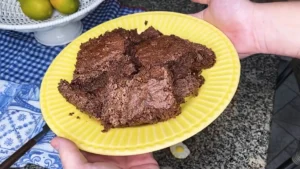
Suggested video What products are in season in August?
Video 1 of 2
A recent study, published in the American scientific journal specializing in biology and medicine PLOS ONErevealed that there is a type of milk that contains more probiotics than cow’s, goat’s or camel’s milk: mare’s milk.
Mare’s milk also has a high content of lactose, polyunsaturated fatty acids and bioactive compounds. There is already scientific evidence that it is excellent for gastrointestinal and respiratory disorders.
The only downside to mare’s milk is that it contains a lower proportion of casein, a protein that stimulates muscle mass gain, and minerals. Still, researchers are optimistic about the health potential of this food.
Although more research is needed, experts believe that it might be a good idea to include mare’s milk in the production of yogurts and ice creams. They make sure that the texture, flavor and smell are pleasant. And you, would you try a yogurt made with mare’s milk?
If mare’s milk doesn’t appeal to you, there are other interesting sources of probiotics. They are found in several common foods that can easily be incorporated into your daily diet. Kefir or kombucha, for example, are two fermented drinks rich in probiotics, often made from milk or water, which contribute to the proper balance of intestinal flora. Yogurt, especially when homemade, is also an excellent source of these beneficial microorganisms.
Fermented vegetables, such as sauerkraut and kimchi, are also particularly rich in probiotics. They provide a wide variety of bacteria that are beneficial for gut health, while being tasty and easy to make at home. Finally, some cheeses, especially soft cheeses like Camembert or Brie, contain probiotics, as does miso, a fermented soybean paste widely used in Japanese cuisine.
Diversifying your sources of probiotics not only enriches your diet, but also allows you to benefit from the varied benefits of different strains of bacteria. It is therefore advisable to combine several of these foods to maximize the positive effects on health.
Source:https://www.750g.com/ce-n-est-ni-le-kefir-ni-le-yaourt-cet-aliment-contient-en-realite-bien-plus-de-probiotiques-a38285.htm


